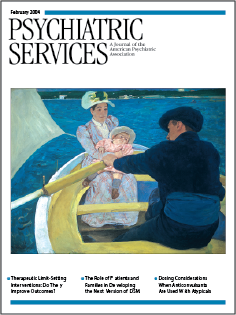You Will Dream New Dreams: Inspiring Personal Stories by Parents of Children With Disabilities is a book that all health care professionals should read. It is a book for parents, especially parents of children with handicaps and serious medical problems—children who are "imperfect." These parents are the ones who will dream new dreams. But we professionals need to dream these dreams as well if we are to offer any meaningful assistance to parents who are struggling with the complexities of caring for children with disabilities.
Some years ago I spoke with the mother of a two-year-old who had CHARGE syndrome (posterior coloboma, heart defect, choanal atresia, retardation, and genital and ear anomalies), a syndrome of disabilities that brought the infant to death's door several times before the problem was identified. This mother said, "I have learned that all doctors are assholes until proven otherwise." And she didn't apologize for saying that. Her opinion reflected the runaround, the avoidance, the use of medical gobbledygook instead of plain English, and the failure to say, "I don't know." Some of the doctors she encountered were in fact "proven otherwise." But the woman and her husband had had to do all the work to walk these doctors through their paces.
Another time I listened to a mother of twins who, born prematurely, had severe and different problems. She described the armies of people who would come to her home to medicate, conduct physical therapy, and give her a schedule and regimen for the care of these now-four-year-old nonambulatory, medically fragile boys. Finally she called a meeting of all of the "providers" at her home. As they sat around the kitchen table hearing the treatment plans proposed by the others, many of them burst into tears.
I have to admit, when I saw the title of this book and began to read the "inspiring personal stories," I thought, "I'm not going to like this." I thought I would dabble in the book and just focus on chapters that seemed to have something special to say. Instead, I read every word. The book contains a lot of excellent advice for parents who are in the early stages of identifying something different about their child as well as those who are coping with the day-to-day challenges, social stigma, and the desire to comfort their friends so that they will be less frightened and can offer comfort. Many of the parents writing in this book have gone on to be advocates, and a wealth of resources are included at the end of the book.
Doctors don't come out looking too good in You Will Dream New Dreams, and that is why it's a good idea for us to read it. Generally doctors try to reassure, minimize concerns, give false hope, or avoid the subject altogether. However, there are exemplary exceptions. One particularly compelling one is a "fiftyish woman with a cheerful manner and bright smile," who picked up a newborn baby girl missing her left forearm and hand, examined her, straightened out the awkward swaddling performed by her inexperienced parents, and said, "How are you feeling about Emma's arm?" She went on, "It's okay to grieve, you know. Parents need to grieve the lost image of a perfect child." When the parents worried about the child's losses, the doctor confidently observed that the child would find a way to tie her shoes, to play the piano, and so on. She concluded with the statement, "The only thing this girl won't be able to do is to wear her wedding ring on her left hand!"
What is so instructive about this story is the contact that the physician made, not just with the parents, but also with the baby. She held the baby, admired her, and spoke of her personhood.
Most of the book is about young children, but the later chapters tell of some children who have grown up—of how they fit into the communities of their peer groups and of how they continue both to depend on and be independent of their parents. Some children do live in facilities that can provide more intensive care than their parents can provide. Unfortunately, none of the essays really addresses how those decisions were made.
In summary, You Will Dream New Dreams is a book all health care professionals should read. The essays are short and to the point. The hardest part of reading it is the emotional response. But if we can respond this way, perhaps we can be more helpful to the people we care for when they experience the stunning, challenging, unexpected, and relentless presence of a child with disabilities. More important, perhaps we will also be able to experience the pride and joy of knowing these children as they grow up managing their relationships and their development in their distinctive ways, pride and joy that their parents quickly learn and are very willing to share with us.

